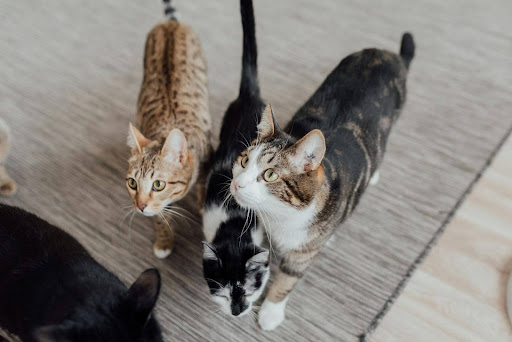If you’re going to be bringing a new animal into the home, then you should expect a fair degree of upheaval. The process can be stressful – for both the animal in question and the owner! But with the help of the right tips, we can smooth out the process, and minimize stress for everyone. Some of our organisers even have an organising your home with pets specialism. For now, we’d like to share these tips:
Risk assessment
What hidden dangers might your home pose to the new arrival? It’s worth thinking about the home from their perspective. Make sure that cables are out of reach, and that any valuable or fragile ornaments can’t be knocked off a shelf. These measures, and a range of others, will help to minimize any damage.
Provide a space
Everyone needs a space they can call their own. For human beings, this might be a bedroom or study; for animals, it might be a cage, or a hutch. Providing your new addition with their own space will allow them to retreat there when things get stressful. When setting out the rules about where your new arrival can go, it’s important to be consistent. There’s no sense in allowing them to climb on the sofa one day, only to forbid it the next.
Adding storage
Animals take up a lot of space in your home. Not only do you need to consider the physical body of the animal itself, but all of the accessories that go along with it. Food, bedding, toys and treats: all of these things should be stored efficiently so that you have maximum space available for other things. For example, you might store toys in stackable baskets, and treats in vacuum-sealed boxes.
Certain perishable products, like guinea pig hay, should be stored somewhere dry, and rotated regularly. Make sure that ventilation is adequate, and that you aren’t storing more than you need. If you want to buy in bulk to avoid the hassle of repeat purchases, then you might set up a subscription, so that extra hay arrives at the start of every week or so.
Keep it clean
Cleanliness might be a major concern after you’ve brought the animal into your home. But certain cleaners can actually be dangerous to animals, even if you’re storing them securely.
Take a look at the ingredient list. You’re looking, ideally, for natural products that don’t contain harsh chemicals. Avoid ammonia, bleach, formaldehyde and ethylene glycol (which is highly toxic, and often found in anti-freeze). Perhaps more surprisingly, you should steer clear of essential oils like tea tree, pine and citrus – these can be dangerous to animals, even in very small doses.
Once you’ve identified the cleaning products you prefer, you can use them regularly to create a space that feels fresh and fragrant – even in the presence of animals!

